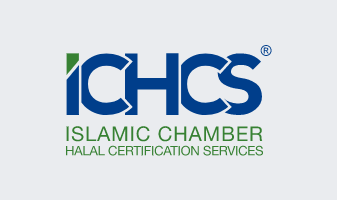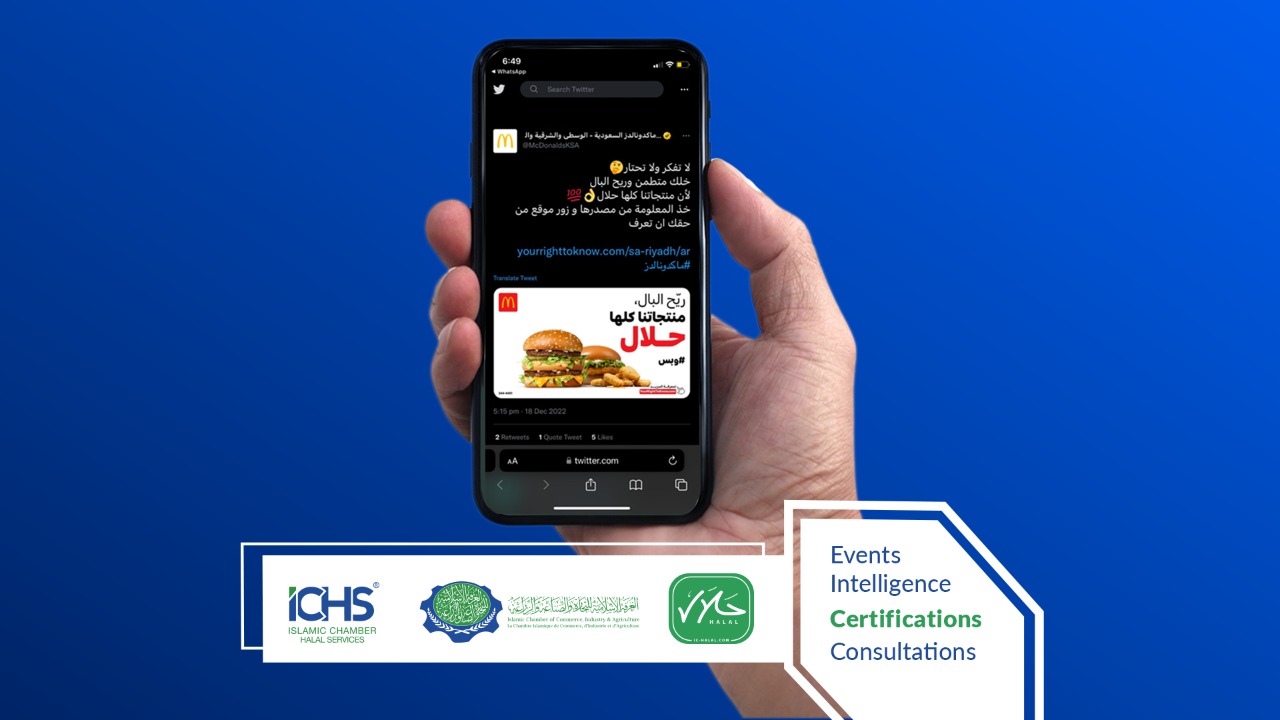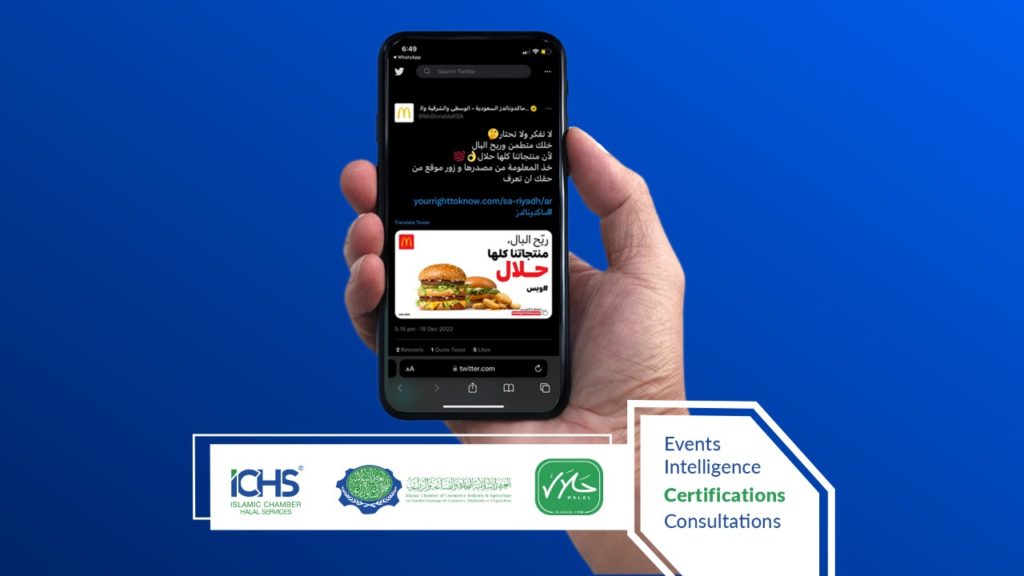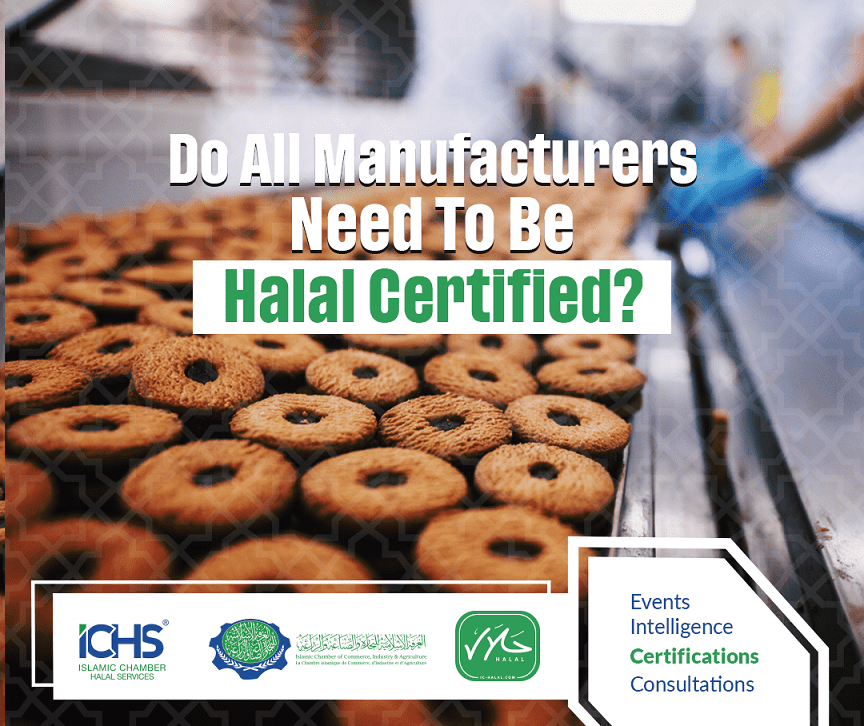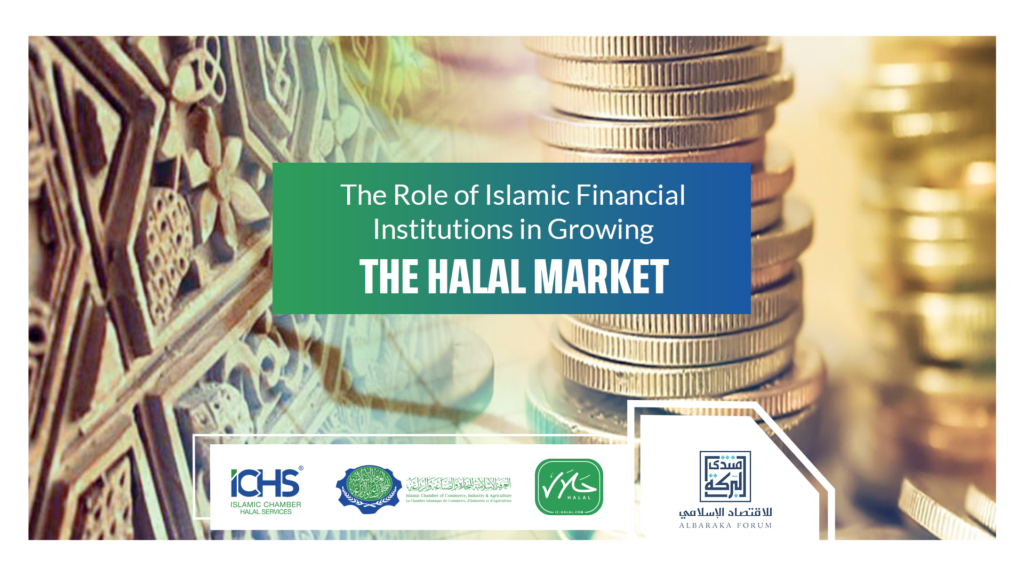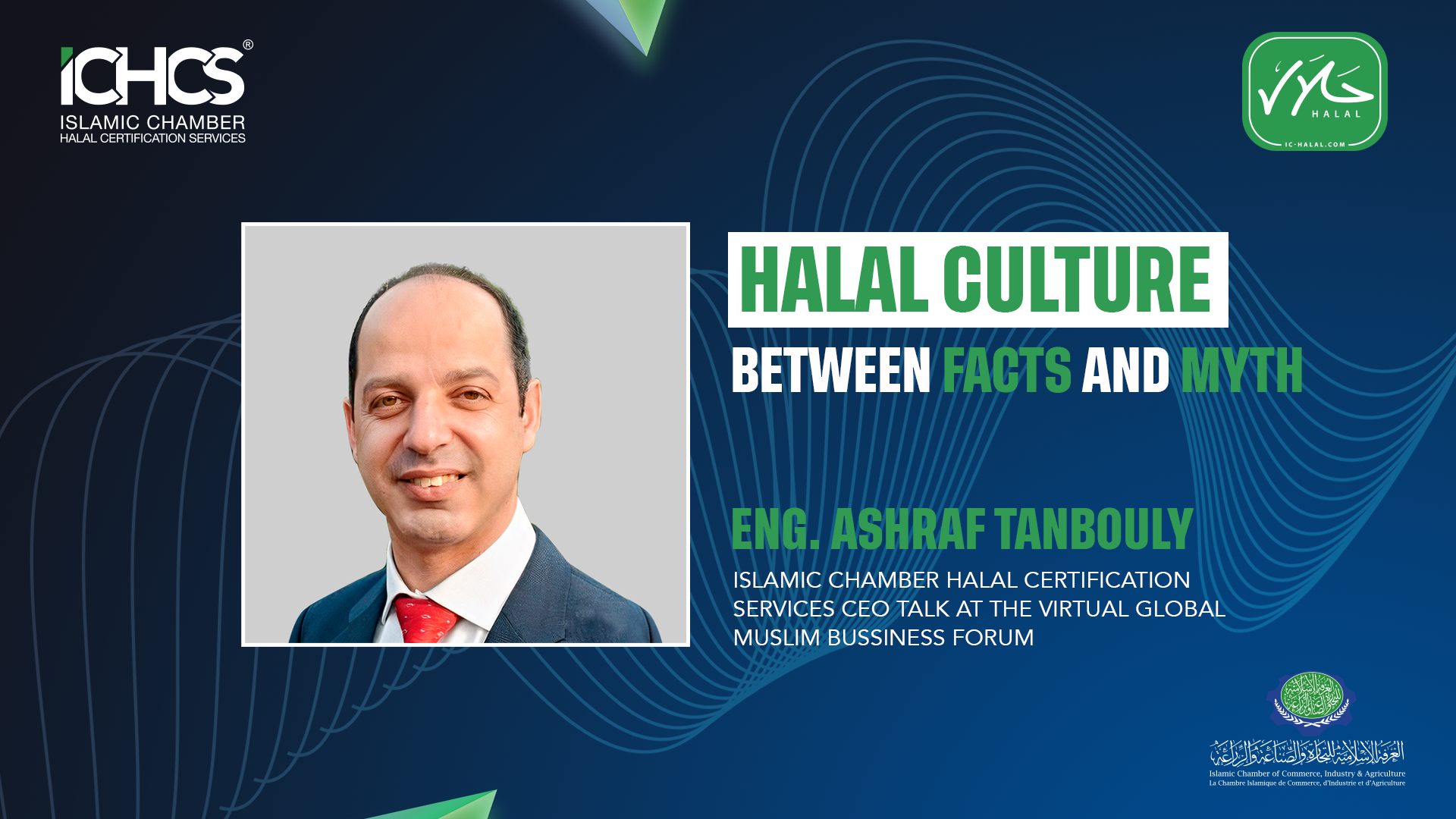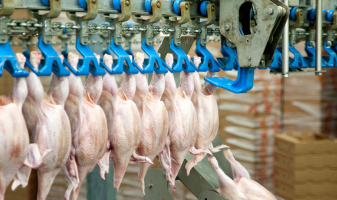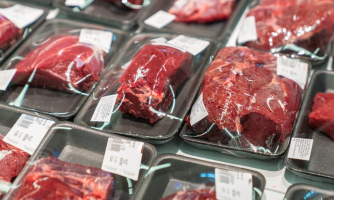The Importance of Halal Certification for End Users
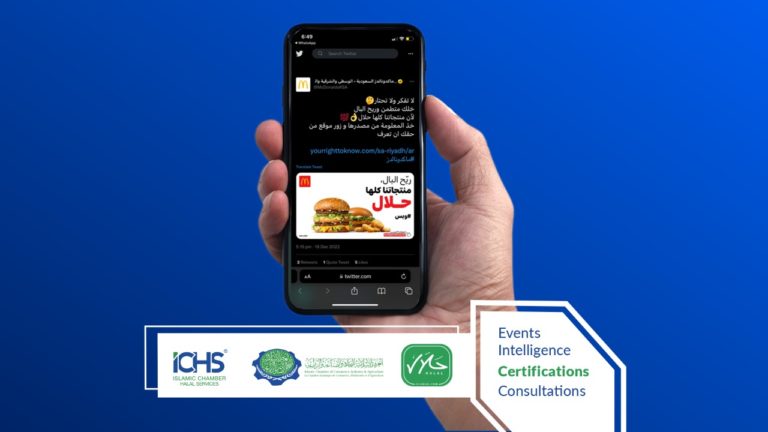
As a producer, trader or brand have you ever considered how much proper Halal certification impacts your business and brand image?
Muslims are taught to adhere to sharia and search for products that follow the dietary standards of Islamic law.
Accordingly Muslim and Muslim-majority countries have special procedures that must be adhered to by manufacturers, producers, or any business owner in order to offer their products to said countries’ citizens.
The most efficient and effective way to prove that their products are indeed Halal is to obtain a Halal certificate from a trusted international body that offers a seal that the producer can then display on their packaging providing the end user the comfort to know that this product is indeed Halal.
Although Halal is predominantly tied to Muslims, some Non-Muslims prefer Halal products too as they are prepared, packaged, and transported in a clean and safe environment and subjected to high safety and quality standards.
Accordingly there has been a noticeable uptick in international brands seeking to get Halal certified.
What is even more interesting is that post certification some brands have taken it a step further running a consumer facing campaign post certification to highlight to all their end users that they are indeed Halal offering them a level of transparency and trust rarely seen previously.
There are many examples of this, the most recent being the campaign McDonald’s KSA is currently running as we speak.
@McDonald’s KSA’s (#ريح_البال_منتجاتنا_حلال) campaign…
The campaign name can be literally translated to (Do not worry, Our products are Halal) and McDonald’s launched this campaign to confirm that they follow and respect the Islamic rules and offer halal products with the correct method of slaughtering to reach more consumers and gain their trust.
Furthermore on their website consumers can log in and get information on the certification process they undertook, who certified them and more which is inline with recent open kitchen campaigns they have been running.
Though the campaign has been running for only a few days on twitter, in parallel with the World Cup final to boot the interaction has been stunning with the campaign generating 400+ Retweets and 300+ Likes in just two days.
This campaign is one of the smartest advertising campaigns that seek to increase trust between the brand and the audience. It’s important to note they launched this campaign after receiving many questions about whether their food is halal or not, which emphasizes that halal has become a key standard in the Muslim world and beyond…
In end we have to say well done, McDonald’s. Keep it up.
If you are looking to get in touch and learn more about how to get Halal certified make sure to drop us a line today.
Related posts
Do All Manufacturers Need to be Halal Certified?
Do All Manufacturers Need to be Halal Certified?
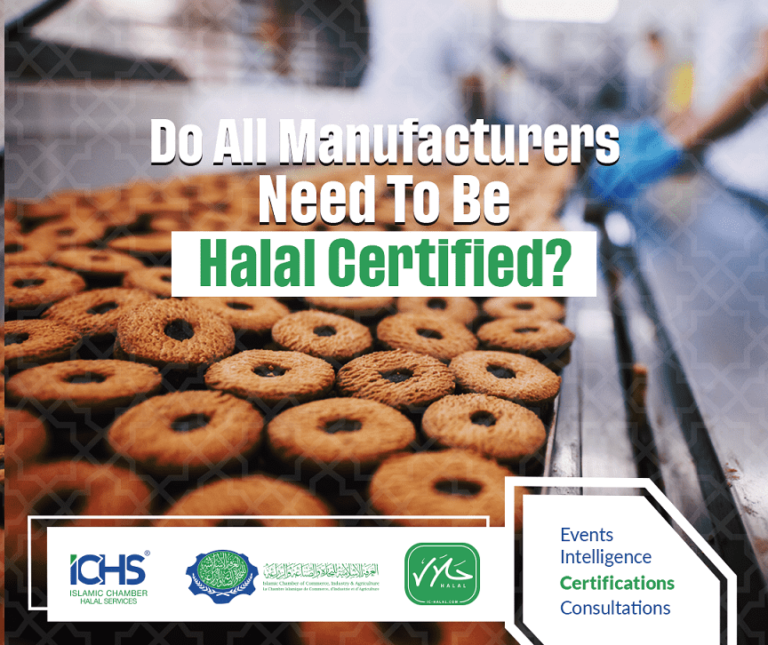
The Halal market is growing at breakneck speed outgrowing other alternative markets such as Vegan and Organic combined.
Although meat is the most famous Halal product, Halal encompasses food, additives, catering, cosmetics, travel, fashion and more.
This market, now valued at over $8 Trillion represents an amazing opportunity for growth for thousands of manufacturers across many verticals.
This leads us to this Question: Do manufacturers and producers need Halal certificates for their products to be able to capitalize on this market?
To answer this questions, we must make an initial differentiation:
- 1) Will you be offering your products in Muslim countries
- 2) Will you be offering your products in Non-Muslim countries
To sell in Muslim countries, producers need to gain a clear understanding of the country requirements.
Some countries like Indonesia have concise regulations for food, beverage, and cosmetics. whereby any product that is imported into the country needs to be Halal certified.
Other countries have requirements for Meat products only (fresh, processed or even ingredients) to be Halal certified while other Muslim countries do not currently have any Halal requirements for products that are imported into their country. Another important note here is that at times Halal standards differ from one country to another and are not uniform across the board.
Having said that, halal regulations in Muslim countries have consistently improving and tightening nature, quickly gaining momentum and are being discussed, constructed and established from a legal standpoint by more and more countries.
So for manufacturers out there interested in tapping into this market, make sure to be on your toes & conduct your due diligence to gain an understanding of the current and future needs for each country you plan to do business with
For Non-Muslim countries, obviously the demand is mainly coming from consumers not governments. Yet considering the large number of Muslims living in non muslim countries & the fact that Halal products are considered by many non Muslims to adhere to certain quality and ethical standards, the market for halal products is very lucrative.
For non-Muslim countries, a well respected Halal Mark that bears reference to the quality standards utilized and is verifiable becomes essential.
The question remains, which standards to follow and which certification body to use?
Simply put you will need to follow the standards of the country you are looking to export to for certification so be sure to be on the look out for this vital information during your due diligence.
If the market country does not have a specific standard they adhere to, then the optimal standard is the SMIIC / OIC Halal Standard.
As it pertains to the Certification body, make sure the certification body is accredited from the destination country where you plan to sell your products. Non accredited certificates -while they might be ok for the short term and in some countries-will be a waste of time and money in the long term and will not be suitable for many countries.
Related posts
The Role of Islamic Financial Institutions in Growing the Halal Market
The Role of Islamic Financial Institutions in Growing the Halal Market.
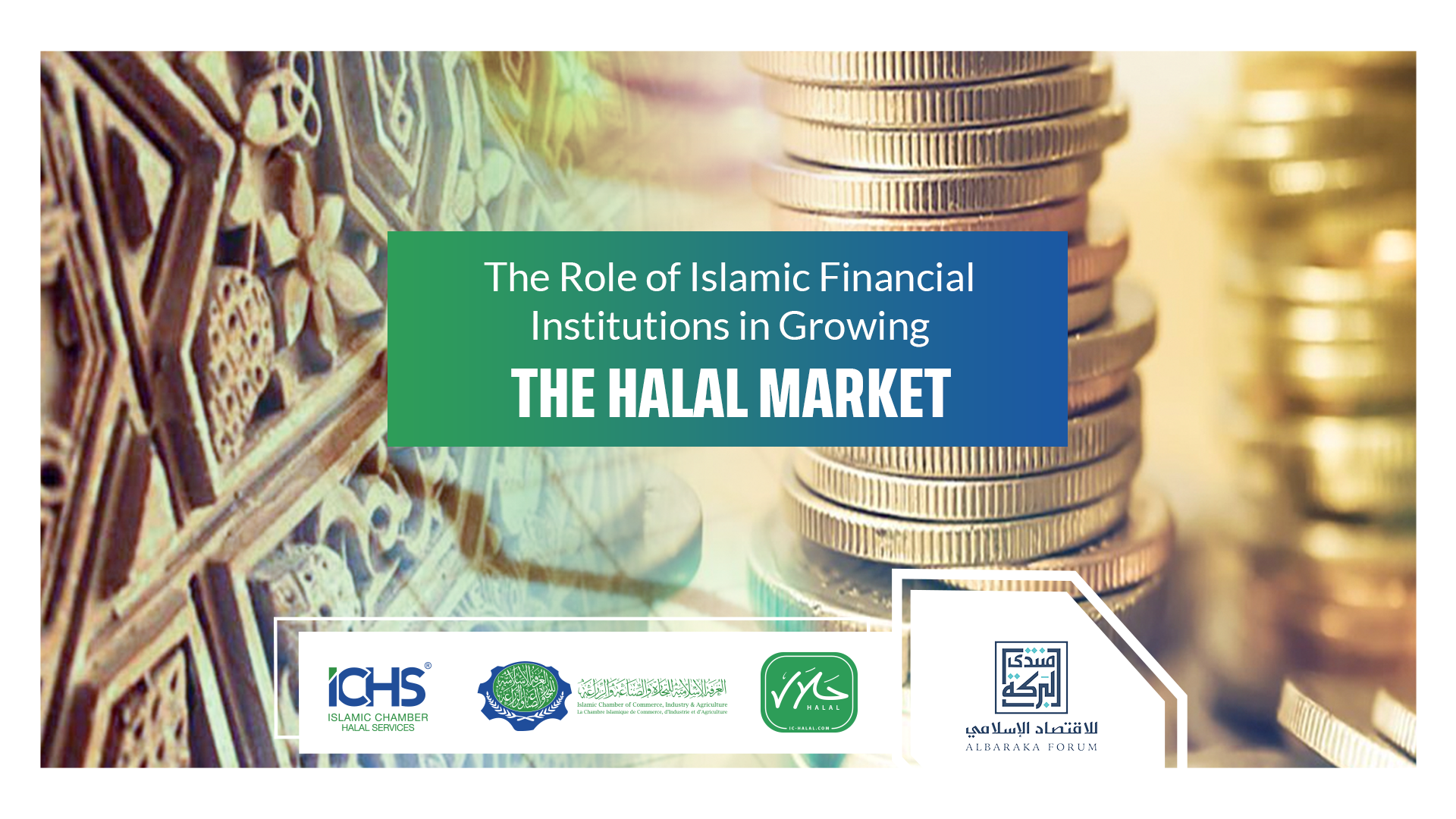
At ICHS we had the privilege of participating in the highly prestigious and influential panel of Al Baraka Summit in London in November 2022.
For those who may not be aware, Albaraka Forum for Islamic Economy is a leading foundation that aims to be the foremost authority and reference on everything pertaining to the Islamic Economy and Finance globally as well as work on developing cognitive content for Islamic Economy commensurate with its heritage, diversity, and inclusivity.
At the fifth session of Al Baraka Summit. ICHS CEO; Eng. Ashraf Tanbouly sat on a panel with many brilliant minds in Islamic Finance and investment, to talk about “The Effectiveness of Islamic Financial Institutions in the British Market
The esteemed speakers in the panel included Mr. Adnan Halawi, MA, CPM. Senior Proposition Manager, LSEG (London Stock Exchange Group).Mr. Stuart Hutton Chief Investment Officer, Simply Ethical. Prof. Dr.Hussein Abdou Faculty Director of Research & Enterprise, Professor of Banking & Finance, Faculty of Business & Justice; University of Central Lancashire. Mr. David Testa DDCAP Group™️, Executive Board Director for Business Origination. And Chairperson: Dr. Natalie Schoon. Principal Consultant, Formabb Ltd
In this panel, the focus was on how the halal market is expanding & according to the Al Baraka Forum’s annual report the Halal market is encompassing +100 million customers in more than 75 countries.
However, when you compare this figure to other finance institutions’ assets. Islamic finance system is still fairly nascent in the UK.
The experts agreed that, the “Halal” finance market, has strong potential but still faces many challenges that need to be addressed in the UK including:
- The size of the Muslim population is relatively small.
- Islamic finance is marketed to Muslims even though non muslims might also agree with their ethos.
- The Pricing is too high.
- Lack of standardization
- Lack of capital market instruments.
On the other hand the esteemed experts agreed there are great opportunists to be seized if we consider the following steps in the future to enhance growth:
- Refocus marketing efforts to become more inclusive
- Focus on the local economy, and invest in SME’s as well as minority owned enterprises
- The connection between halal and sustainably
Our CEO, Eng. Ashraf Tanbouly spoke about the increasing demand for halal products all over the world, Which is leading to producers of all kinds in need of funding to transform their production process to become Halal certified as an example of a great market opportunity. Currently these firms seek funding from traditional banks to get loans or IPOs “initial public offering” & don’t go for Islamic banking institutions and ask for Islamic investments like “ Morabeha” or “ Sukuk” or “ Musharakah” even though they may be a better alternative because of their lack of knowledge pertaining to a lot of Islamic finance products and how they can utilize them to build and grow out their burgeoning halal business.
He also emphasized the need for Islamic financial institutes to have a solution ready to account for said growth in demand to offer customers, and expressed the importance of participation in Al Barka forum every year as he also stated:
“We look forward to taking part in future editions of Al Baraka Forum”.
For those who were not able to take part and are interested to view some of the panels feel free to log onto their youtube channel here”
Related posts
Halal Culture: Between Facts and Myth
Halal Culture: Between Facts and Myth.
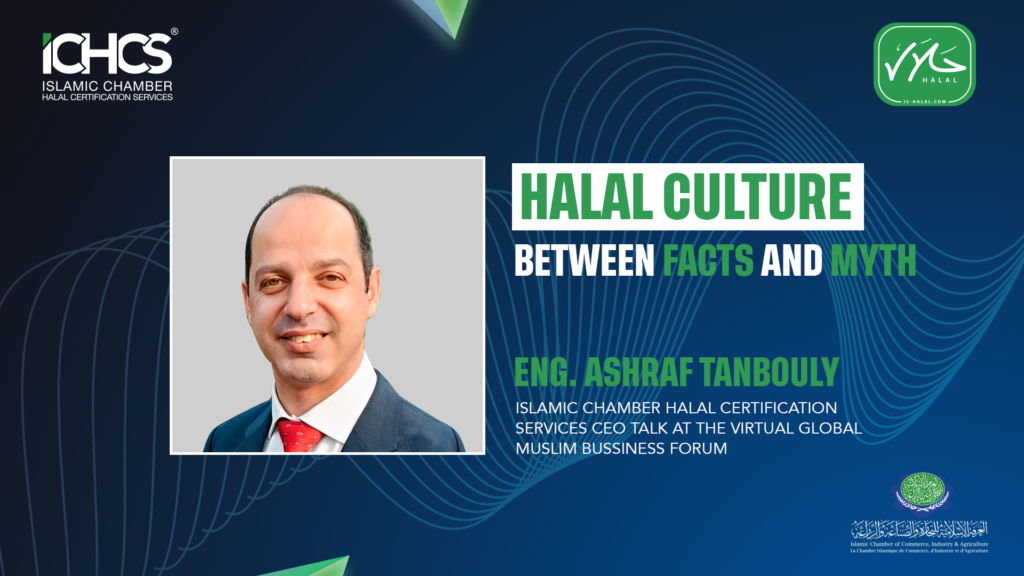
At ICHCS we had the privilege of participating in the highly prestigious and influential Global Muslim Business Forum(GMPF 2022) In Malaysia, as he participated as virtual speaker in 19 October 2022.
For those who may not be aware, the Global Muslim Business Forum was recently founded by the KSI Strategic Institute for Asia Pacific, a leading Asian Think Tank based in Kuala Lumpur and Global One, a UN accredited womens’ NGO headquartered in London.
The aim of the forum is to focus on promoting strategic partnerships, dialogues and business collaboration among Muslim countries as they continue to rebuild from their current status quo, their current economic crises as a result of such factors such as COVID pandemic and so forth that have overwhelmed the world economy.
For context in 2022, the Global Islamic Economy remained an untapped economic and business opportunity with over 1.9 billion Muslims spending over USD $2.02 trillion across six economic sectors, led by halal food followed in terms of revenue by fashion, media and travel with projections highlighting that Muslims are expected to spend $2.4 trillion by 2024.
Our CEO; Eng. Ashraf Tanbouly took part in a panel at The Global Muslim Business Forum alongside several esteemed panelists including Dr. Ahmed Rabie representing Al-Azhar University, Prof. Dato Dr Jamil Haji Hamali, Chairman of the Arab-Malaysia Chamber of Commerce, Emeritus Prof. Dr. Choudhury Mahmood Hasan, representing the Manarat International University in Bangladesh and Usman Nizar, Chief Executive Officer, Monzsat Services, Malaysia and Pakistan
Eng. Ashraf Tanbouly spoke on how to best leverage the $2 Trillion market size in Halal Economy, below are some excerpts from Eng. Ashraf Tanbouly’s keynote for those who were not able to attend…
Pertaining to the Halal market in general in terms of scope and regulations…
“It is an established fact that Halal market is growing extremely fast whether in food, cosmetics, tourism and other dimensions of the Halal economy. In the food sector, Halal is not limited to fresh meat and slaughterhouses, rather it is a complete ecosystem. A food supply chain that starts at the farm, followed by slaughterhouses, food processing factories, additives providers, logistics, and finally catering. The whole supply chain needs to be compliant for the final product or meal to be compliant. The supply chain needs to be supported by a legislative framework, service providers and trained staff such as quality personnel, production personnel, butchers, and that also includes chefs. Suppliers of all types already see the opportunity in the Halal market and are pursuing Halal certification.”
Pertaining to the Halal market in terms of cosmetics, travel and other industries…
“In the Cosmetics / pharmaceutical sector, the consumer demand is growing, but suppliers are not yet seeing the opportunities as clear as food suppliers do. In the travel sector, it is the same as the food sector, not limited to Halal meals; it’s rather looked upon and carried out as part of a country’s ecosystem. We as Halal travelers, genuinly look for Halal meals but also a room without alohol, an outing that is suitable for a family, a tour guide that is familiar with Islamic requirements, assistance with Qibla direction and many more Muslim friendly and Halal requirements and all the nuances that go with .”
Regarding the opportunity to connect buyers and sellers to further grow the Halal market…
“The most important objective for any producer or trader is to grow the business and find more markets; we support this growth through operating a free directory “ICHCS Commerce Platform” that connects halal producers, traders, and services providers from all over the world. Allowing global connections and networking that will support market growth. With that growth, business is responding by trying to fulfill the Halal market requirements such as products, certificates, and well recognised, trusted and genuine Halal brands.”
On the challenges as it pertains to Halal certification…
“With this speedy growth comes hurdles, we have seen non-halal products get a Halal certificate and bear a Halal logo. In addition to that , we have also seen Halal audits performed by reviewing some documents without references to specific standards or even visiting the production sites.
We have seen individual and small auditors providing certification according to their understanding of Halal and providing halal certificates upon receiving payment.
I am not saying it is all bad, but at this state of expansion, what this market needs is a collaborative approach between all parties rather than a competitive approach.
We need consumers to become more aware of the importance of genuine Halal brands, how tgis impacts their lives and demand THE halal brand and not just any Halal logo. An accredited logo and a reference to a standard. As an example of consumer power, we have seen patients in Islamic countries demand Halal proof of Multivitamins prescribed by doctors which actually forced Pharmaceutical companies to research, makethe investment and become Halal ceritified
We need Muslim traders to live up to their responsibilities and demand accredited Halal certificates from their suppliers. As an example of trader responsibility, we have seen Muslim Airliners demand Halal certificates from all their food & beverage suppliers.
We need governments to mandate ‘halalness’ of products imported into their country. As an example of government power, we have seen countries legalize the requirement for ‘Halalness’ of products. Now we need to increase the knowledge and the awaress of these illuminating examples. I hope Standards’ bodies, legislators, accreditation bodies, certification bodies and consultants to work together and in harmony, share thoughts and experiences towards building a proper Halal Ecosystem. = Do we really need to add this? It is somewhat jarring in the buisliness like content of the article to suddenly add a religious reference like that, I’m also not sure that it is very relevant but what I am sure of, is that it would be much better not to mix business with outright religious inferences such as this – my recommendation, delelter that last like related to the prophet.
Be sure to keep an eye out for upcoming announcements on our website as well as our Linkedin account to get more information on future appearances at global events of interest over the coming months…
Related posts
The First Halal Audit For An Iconic Poultry Slaughterhouse
ICHCS team has successfully preformed the first Halal audit for an iconic poultry slaughterhouse in Egypt. The Halal audit team and the management team travelled towards the eastern side of Egypt, right next to Suez Canal’s west bank, where iconic company engaged in manufacturing and producing poultry products.
Enhancing The Halal Food Value Chain
Governments are concerned with ensuring that their people are eating Halal, for that they do establish Halal Standards or adopt a halal Standard such as SMIIC but are faced with challenge of auditing producers all over the world to ensure their compliance with Halal Standards.
Opportunities Of The Virtual World
Opportunities Of The Virtual World
